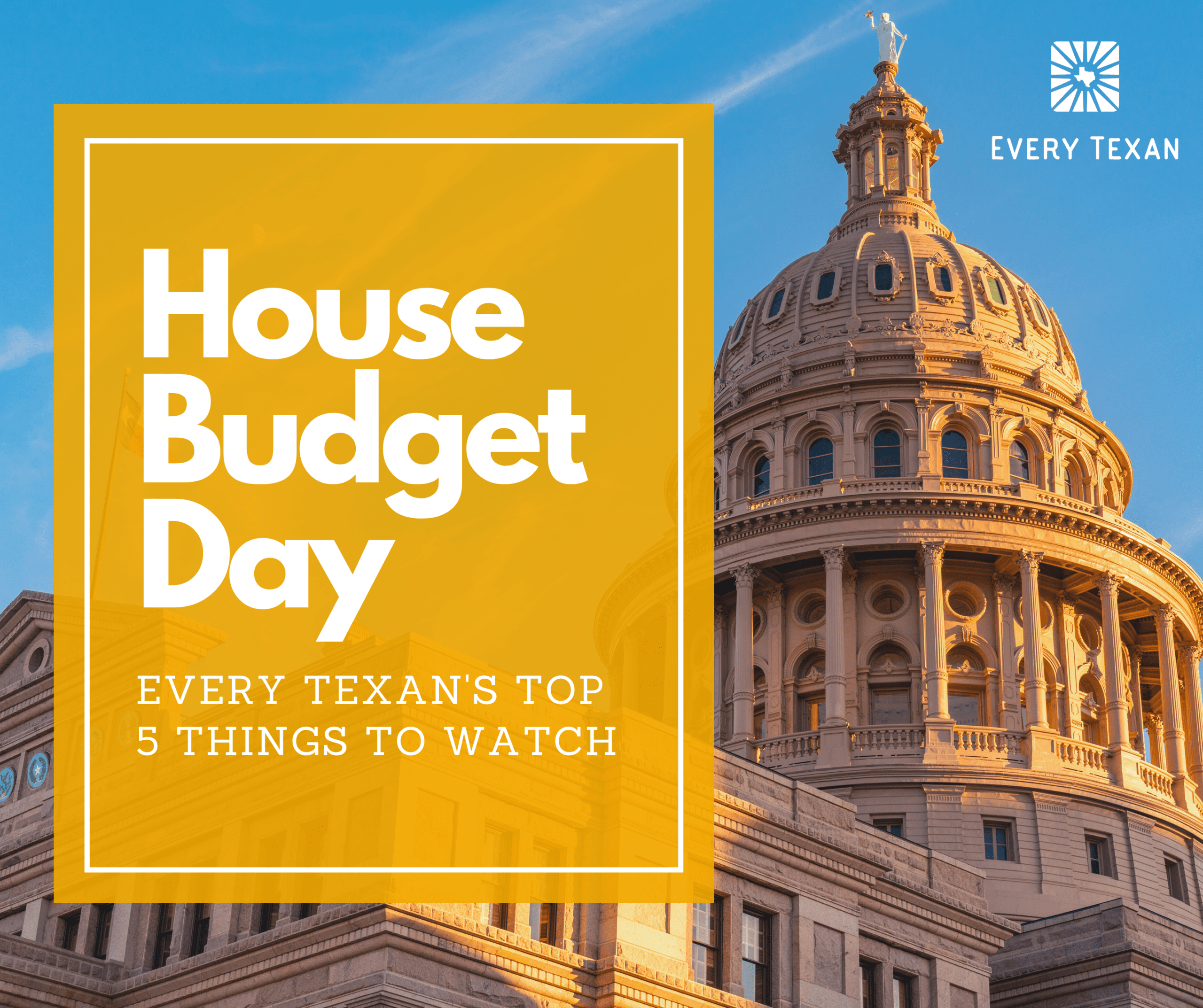This Thursday, April 22, is House Budget Day. Every Texan recognizes that the state budget is a moral document, and that what we value ought to be reflected in our state budget. A balanced and equitable budget is a key part of making this a state where Texans of all backgrounds have an equal opportunity to thrive. In our 36-year history of advancing social justice through public policy, we have always used our voice to analyze how and if the state budget moves Texas toward justice.
Here are the top 5 things Every Texan is watching for this Thursday:
1. Health Coverage
Speaker Phelan promised a debate on coverage expansion for low-income Texans that would bring a 90/10 federal match for Medicaid expansion dollars. This debate takes on even more importance with the denial of the 1115 waiver extension. Will legislators vote for their district’s interests by bringing in much-needed funding for rural hospitals, or will they continue to play partisan politics with Texans’ lives and let other states take all the funds that could come to Texas?
2. Higher Education
Despite the availability of federal funding and a large Economic Stabilization Fund (ESF), both the House and Senate budget proposals continue to underfund higher education needs and shortchange our future. One critical source of support for 87,000 Texas students is the need-based financial aid program, TEXAS Grants, which reached fewer than 60% of eligible students before the pandemic. For 2022-2023, the House budget undoes the 5% interim reductions to TEXAS Grants, the Texas Educational Opportunity Grant, and the Equalization Grant (for private universities), but does not propose any additional state support, even as economic conditions remain difficult. Will budget amendments find a way to correct this injustice?
3. Federal Funding
To date there has been very little transparency on the status of federal funding coming to Texas for pandemic recovery. Starting in March 2020, over $16 billion in federal COVID-19 aid was allocated to Texas universities, teaching hospitals, and state agencies overseeing health, nutrition, employment, housing, public safety, and social services through two of the federal relief packages: the Families First Coronavirus Response Act, and the CARES Act. This 40 percent increase in the “usual” amount of federal aid in the state budget — some of it provided in relatively flexible grants such as the $8 billion in Coronavirus Relief Funds for state government — took place with inadequate notification, input and involvement of state lawmakers, even those on the Appropriations Committee. We understand that the Legislature has many questions awaiting clarification from federal agencies before final allocations can be made, but believe there is still time for the full House and Senate to at least create a framework that ensures these critically needed dollars start flowing to our communities as expeditiously and equitably as possible. Schools are making budget decisions in the dark and hoping at least $17 billion in newly available funding comes their way at some point, but how much and when are still very much in the air.
4. Border Security
Will the Legislature continue to spend almost $800 million on border security, including Department of Public Safety (DPS) overtime and lodging costs to monitor unaccompanied minors self-reporting to federal officials along the Texas border? The lion’s share of the 2022-2023 Border Security funding is $693 million for the DPS, which uses it for routine border security operations and other baseline border security-related activities, including an expanded work week for all DPS commissioned law enforcement officers. Budget riders are being proposed to take small amounts from this funding — for example, $5 million for humanitarian assistance for migrant children. Reports and studies consistently show that these children are fleeing violence in their countries of origin and intentionally turn themselves in to law enforcement once in the U.S. Will amendments attempting to redirect state dollars to more urgent needs, like health care and humanitarian needs, get any traction?
5. Extremism
At some point a legislator will offer a rider that is way outside the mainstream — and it will force the Speaker and his lieutenants to rein in the members. A quick glance of the amendments demonstrate examples such as amendment 137, which prohibits any pandemic response being used for undocumented immigrants; amendment 142, which would prohibit business closures in any future emergency; and amendment 844, which would defund counties for election violations. We’ll see if the Speaker and the members can hold the line of reason.
